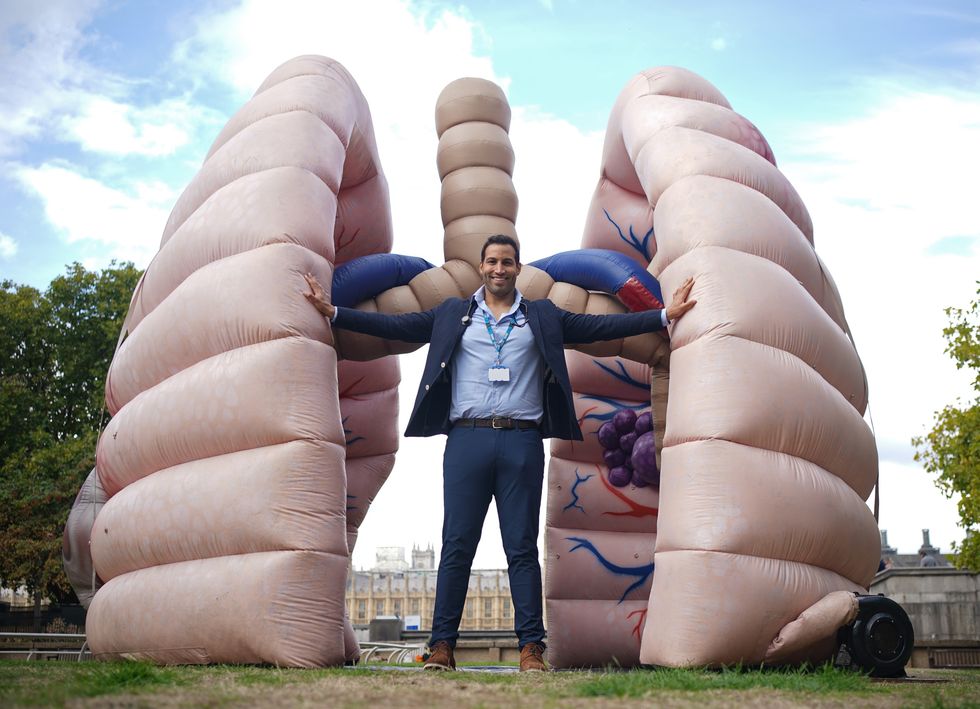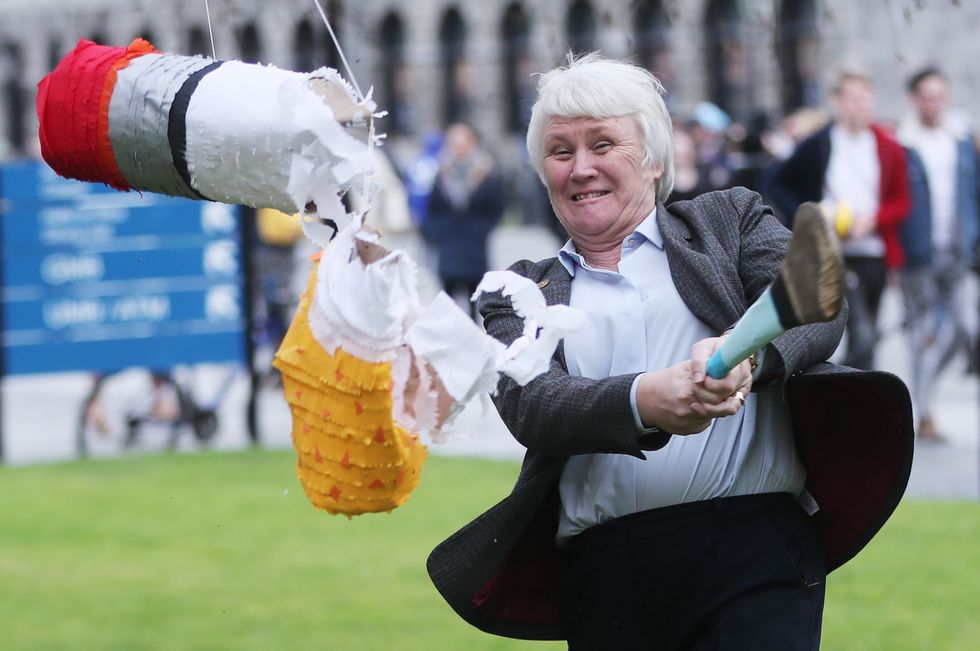
UKNSC recommends a mass rollout of health checks for all former and current smokers aged between 55 and 74
PA
The Government is preparing to rollout mobile CT scan screening after a successful pilot scheme
Don't Miss
Most Read
Anyone middle aged and over who has ever smoked is set to be encouraged to partake in on-the-spot lung checks in a landmark scheme.
Positive results from pilot schemes up and down the country have brought Downing Street and the Department of Health and Social Care to the funding levels negotiating table.
The pilot scheme has seen mobile assessment units and trucks stationed in car parks, with those deemed at high risk of lung cancer being offered a low-dose CT scan under the recommendation of a health professional.
At these checks, three out of four stage one or two lung cancer cases can be spotted, catching the disease earlier when it is more likely to be treatable.

Dr Chris George, NHS medical doctor, beside a large inflatable lung at St Thomas' Hospital in central London, during the launch of the Let's Talk Lung Cancer Roadshow
PA
More than half of those diagnosed with stage one lung cancer will survive their cancer for five years or more, while just five per cent of those diagnosed with stage four disease will still be alive five years later.
Last September, the UK National Screening Committee (UKNSC) recommended the mass rollout of health checks for all former and current smokers aged between 55 and 74.
With lung cancer survival rates languishing at around 15 per cent, the UK has become consistently poor at detecting and treating the disease.
Roving CT scan checks are already on offer in over 43 parts of the country, with a higher concentration in the most deprived areas.

A punter smokes a cigar at Royal Ascot
PA
On Tuesday, the Health Secretary said the trial had been so successful that poorer areas were now out performing wealthier ones in early stage lung cancer diagnoses.
Steve Barclay told the House of Commons health and social care committee: “We are now actually detecting more stage one and two cancers in the most deprived communities than in the most affluent communities, and that is because of the lung cancer screening programme that we’ve got in place.”
Last week, he told the NHS Confed Expo conference in Manchester that the pilot schemes were “a positive step and a practical example of how we are addressing health inequalities”.
Britain’s most common cause of cancer death, there are 50,000 lung cancer diagnoses annually and around 35,000 deaths.

Junior Minister for Health Catherine Byrne launches the campaign for a tobacco free campus at Trinity College as part of National No Smoking Day
PA
Hazel Cheeseman, deputy chief executive of Action on Smoking and Health (ASH), told GB News: “The news of lung screening is very welcome, and, as the National Screening Committee recommended, it must include high quality support to stop for those who are still smoking when they attend the screening.
"Smokers who develop lung cancer can double their life expectancy by stopping.
"Stopping smoking also reduces the chances of developing many other illnesses such as heart conditions and COPD.
"The screening programme will have maximum impact on nation’s health if it can help many more smokers to quit.”
The Government has pledged to diagnose three in four cancers at early stages by 2028.
Where the rate is currently around two in four, the Government will be emboldened by the test pilot results.
While in the short-term mass screenings will put extra pressure on an already strained NHS, but charities have lauded the test schemes as “extraordinary” with the potential to save 5,000 lives a year.
Michelle Mitchell, chief executive of Cancer Research UK, told MPs on Wednesday that taking actioning the recommendation would be “an important practical step” towards boosting Britain’s cancer survival.
Mitchell said: “We know lung cancer is one of the single drivers of health inequality in this country.”
Smoking is said to be responsible for over 70 per cent of lung cancers and increases the risk of at least 14 other types of cancer.












